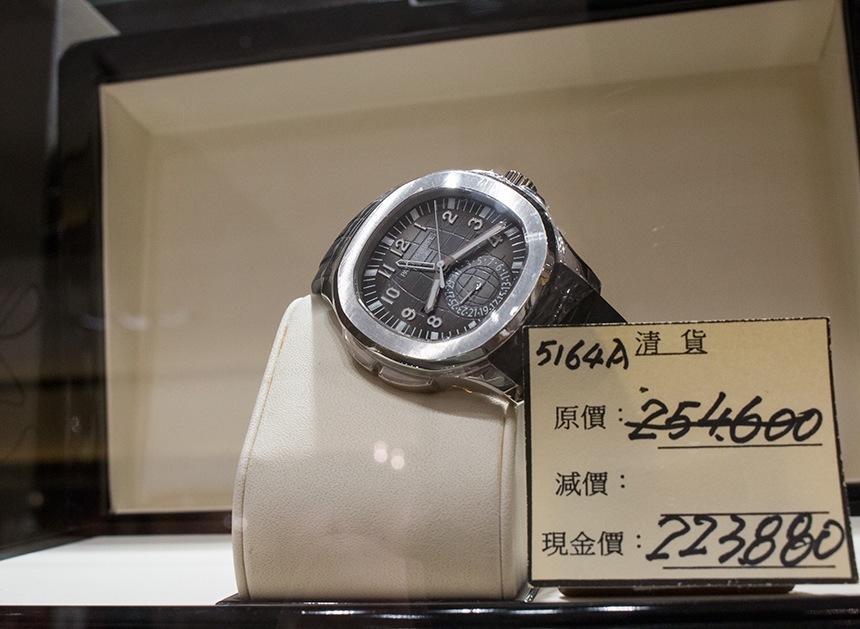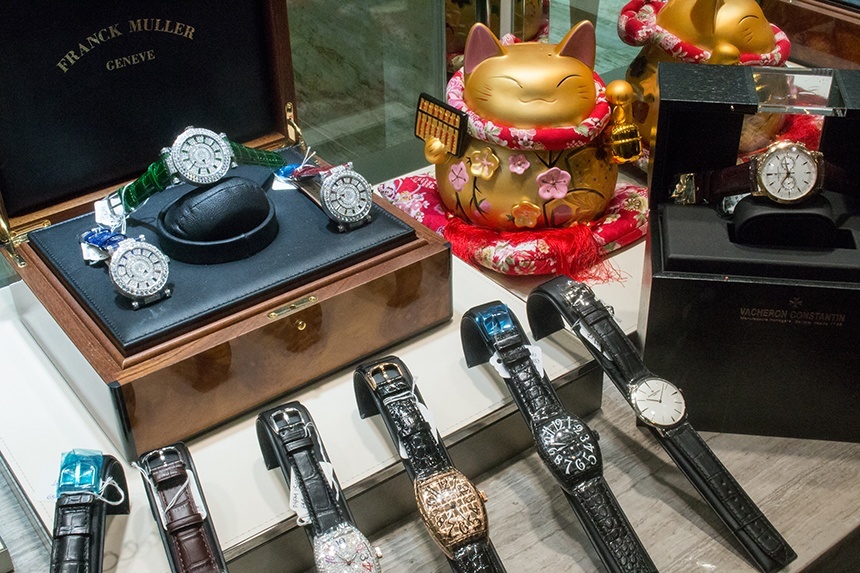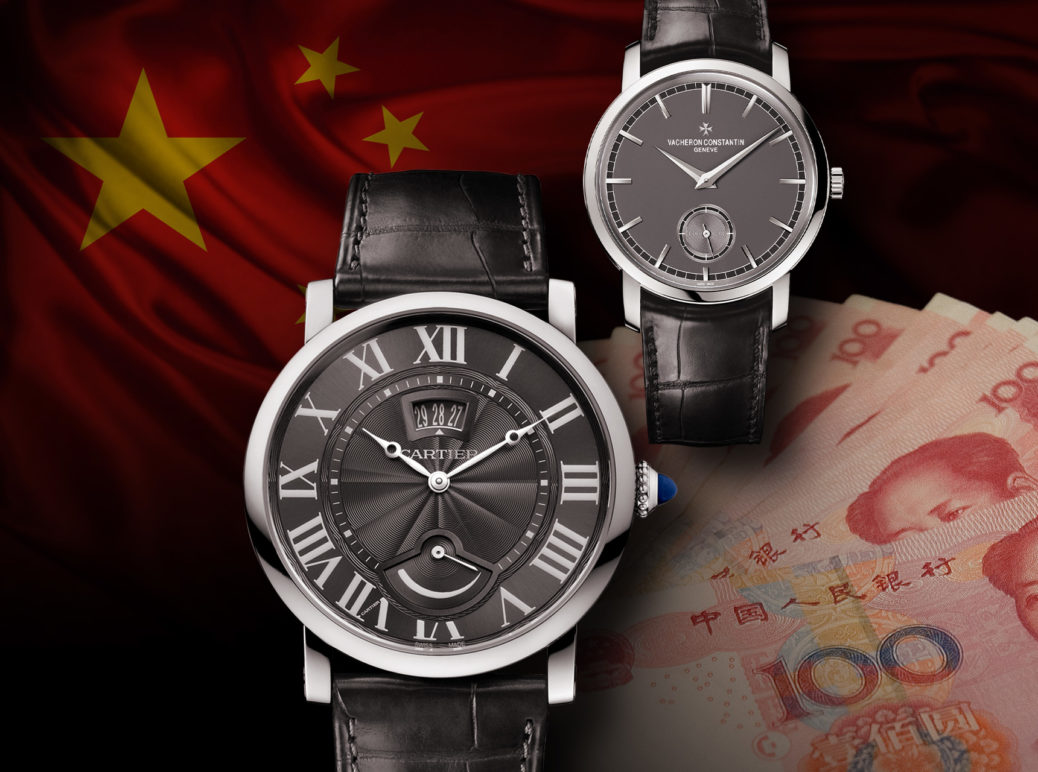
What does that above statement mean? Well, in a sense, it means that when it comes to timepieces (at the least), Chinese consumers will not have “domestic equivalents” to purchase per China’s policy of trying to encourage its people to buy goods produced in China – even if they have a lower price. More importantly, it may have the effect of not only slowing down luxury watch consumption in China, but more so globally – which could spell death or extreme hardship for watch retailers and brands alike who rely on Chinese tourist spending habits in popular tourist destinations around the world.

It is very important to note a policy aBlogtoWatch covered that went into effect back in 2013 which actually removed some tariffs for Swiss watches sold in China. The idea then was also to spur domestic luxury sales as part of a larger diplomatic and economic exchange between Switzerland and China. It didn’t make it easier to bring luxury watches into China for consumers, but it was designed to encourage consumption domestically. Now, in 2016, China takes a further stab at foreign goods with the new taxes aimed at consumer spending mainly online, but also during travel.
Luxury spending experts might correctly point out that despite higher prices, watches are in demand enough that many consumers will tolerate the prices given that their demographic is less price-sensitive. With that said, consumers of all kinds (luxury or otherwise) are going to seek the best possible prices for goods – which is why so many of them actually put in the effort to leave China almost exclusively to purchase luxury items. That means Chinese watch buyers will inevitably find other means of purchasing luxury watches, and if that way isn’t linked to travel and purchase of a lower-priced luxury watch elsewhere, the currently still “China-reliant” watch industry will be in serious trouble.

What I don’t know is the full extent to which the new import tariffs affect prices of luxury goods in retail boutiques located within China. It could actually mean that despite high prices, luxury watches for Chinese consumers might be the cheapest to buy within China. If these prices are reasonable enough, then the potential increase of domestic demand for luxury watches and the accompanying sale of timepieces into the Chinese market could help to offset reduced sales of watches in other parts of the world. That is good for brands, but not good for retailers around the world who currently heavily rely on Chinese tourist spending. It is worth noting, however, that consumers tend to spend more while traveling than while at home, so even if watch retail prices are lower in China than outside of China (for Chinese consumers wishing to bring their goods back home), overall spending on luxury watches will likely go down.
In summary, China’s new April 8, 2016, tariff regulations heavily tax imported goods such as luxury watches coming into China, be it in someone’s suitcase or via the post after being ordered online. The policies are meant to encourage domestic consumption of domestically produced goods. While the majority of Chinese consumers will not be very adversely affected, it will have a large impact on the volume of watches sold to Chinese people, as well as where those purchases are actually made. No longer can Chinese tourists enjoy lower prices outside of China and then expect to return home with their watches without fear of large customs obligations or penalties for failing to declare such purchases.

How will luxury watch brands react? Of course, the preferred action is to simply focus on the growth of another luxury watch-buying market. None, however, have had the growth or passion for consumption as China has had over the last several years. Brands are attempting to heavily focus on markets such as the United States and Europe, but domestic consumption even in those markets is steady at best when compared to tourist activity (mostly Chinese tourists). The Swiss government will likely try to intervene and do its best to have China at the least make domestic retail purchasing of luxury watches a bit more affordable as that would allow China to feel as though it is more capable of capturing tax income and controlling the market.
The Swiss watch industry could also focus on overall retail price reduction – at least for the Chinese market. Prices would still be high, but at least it would help. I am actually curious to see what the major European luxury watch brands do in response to these very impactful new economic policy measures. Returning to the Chinese watch consumer, it will also be interesting to see how these new policies affect demand. Will consumers in China buy fewer watches? Will they spend a little less outside of China? Will they prefer to purchase lower-priced watches overall?

We tend to associate higher prices with a decrease in demand, and that is generally true save for special situations involving emotional luxury purchases. Assuming demand and prestige value are still high, it is possible that, in at least some ways, Chinese luxury consumers will find a way to bear the increased costs of watches. Moreover, basic economics dictates that consumers will choose the path of least resistance when it comes to buying what they want. So assuming these regulations remain in effect for a while, I am curious to see what the preferred means (and venue) of buying luxury watches for Chinese consumers will be in the coming years. If you aren’t a Chinese watch consumer, now might be the time to make your purchases – you know, as a way of giving back to the industry during this potential time of need.
References:– wsj.com/articles/china-tax-on-overseas-purchases-set-to-kick-in-1459439096
– news.xinhuanet.com/english/2016-04/08/c_135262157.htm
– jingdaily.com/china-gets-tough-with-cross-border-e-commerce-and-customs-control/
– kpmg.com/CN/en/IssuesAndInsights/ArticlesPublications/Newsletters/ChinaAlerts/Documents/china-tax-alert-14-cross-border-ecommerce.pdf
– albatrossasia.com/7-reasons-why-chinese-luxury-consumers-prefer-to-buy-abroad/
– ft.com/cms/s/2/5347ba5a-8dab-11e3-ba55-00144feab7de.html#axzz46orqUVUa
– dlapiper.com/en/us/insights/publications/2016/04/china-increases-taxes/
– fortune.com/2016/04/03/chinas-grey-luxury-market-taxes/
– dutycalculator.com/popular-import-items/import-duty-and-taxes-for-luxury-watch/
– fbicgroup.com/sites/default/files/New%20Regulations%20on%20Cross-Border%20E-Commerce%20%28Import%29.pdf

